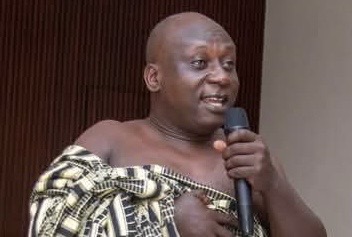Nii Kwardey Ntreh, a cultural activist and storyteller at the Ga Mantse Palace, has shed light on the meaning of the Ga greeting ‘Oobakɛ’, which some Ga people are advocating to see displayed on national signages.

According to him, the term has always existed, despite claims to the contrary.
“‘Oobakɛ’ means you shall surely come. There is an expectation embedded in the long opening vowel. It functions as a future participle, expressing the hope that foreigners will come and live with us,” Nii explained on Joy FM’s Showbiz A-Z with Kwame Dadzie on Saturday, 30th August 2025.
He described the greeting as “exoteric,” noting that it is not commonly used in everyday conversation.
“Daily speech among the Ga people often uses the simpler ‘atuu,’ while traditional leaders and elders still use ‘Oobakɛ,’” he added.
This explanation follows recent agitation from sections of the Ga community, who protested the absence of their language on national infrastructure signages situated on Ga land. They argued that Akan and Ewe greetings featured on the welcome signage at the Kwame Nkrumah Memorial Park in Accra should be replaced with a Ga inscription. Shortly after, the signage was updated.
The campaign later extended to the Kotoka International Airport, where advocates demanded that the word ‘Akwaaba’ be replaced with ‘Oobakɛ.’ Images believed to be AI-generated have since circulated online, showing the airport signage altered to display the Ga greeting, though reports confirm that the original Akwaaba signage remains intact.
The debate has reignited broader discussions about the survival and visibility of Ga culture, particularly in Accra—a city that reflects Ghana’s cosmopolitan diversity as the nation’s capital.

